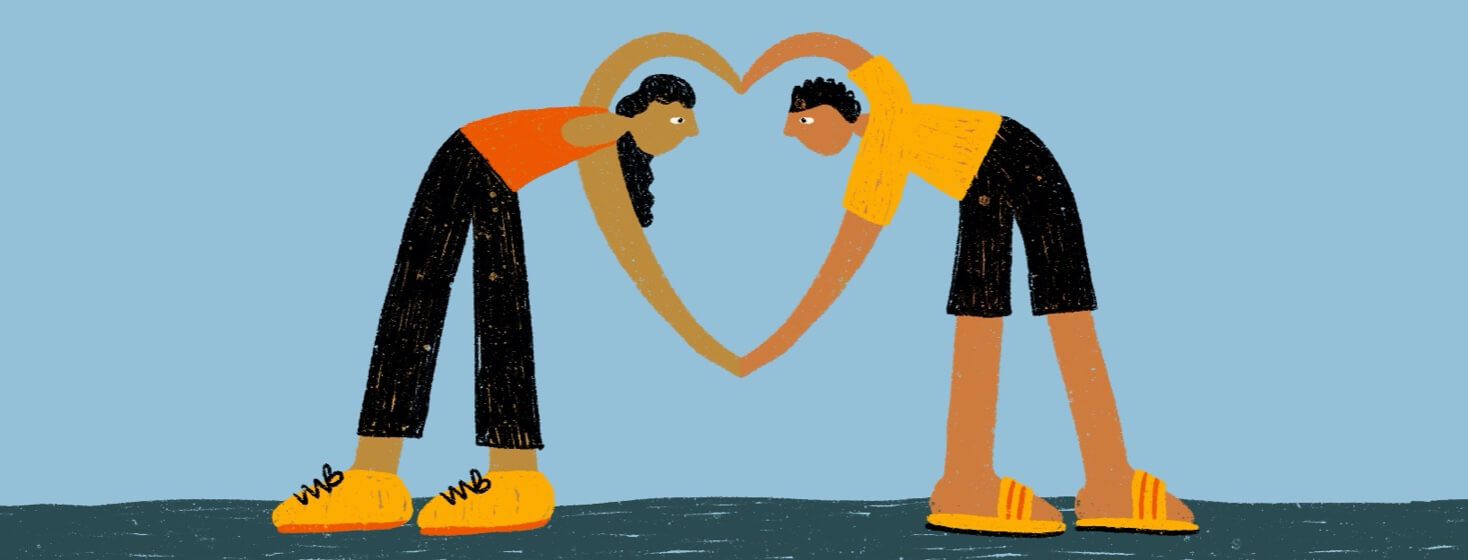I'm Not Broken, Just Bent
Love isn't just a four-letter word; it is an intense feeling of genuine affection for someone else. Navigating love for someone with a chronic illness is quite challenging because we seem to want more than just passion.
Beyond our basic wants are our immediate needs. Personally, I approach love seeking loyalty, trust, commitment, dependability, emotional intelligence, compassion, humor, and open communication. It is a long list but regardless of age, sex, race, or creed, love is a universal language that we all have an innate desire to speak.
What is love to me?
A popular quote that I wholeheartedly despise is "the best things in life are free" because it is simply untrue.
Everything in life comes at a price or requires a sacrificial act - love, success, shelter, security, peace of mind, and sometimes, happiness - it always seems like something's gotta give. Living with sickle cell for most of my adult life meant growing up with a feeling of inadequacy that is deeply rooted in my childhood experiences. In relationships, romantic or platonic, I never want to be seen as a burden or a crutch, so I constantly over-compensate for a lack of great health given my complex medical history.
Keeping things honest, I assume that most men assess love like a rate sheet with categories for beauty, intelligence, neatness, culinary and homemaking skills, financial independence, income level, spirituality, hobbies/interests, maternal instinct, core values, health, etc. I often think to myself, if I fall short in one major category then I must excel in all others so that my average tallies up to a high score. This overly critical self-assessment slowly chips away at my self-esteem and for years, I've sought acceptance and love from everyone I encounter.
Reality
The truth is that my feelings of insecurity are a result of my own limiting beliefs. For many years, I can admit that it was the story I repeatedly told myself about who I am, what I brought to the table and the type of life I deserve. We could argue until the cows come home but sickle cell and I are a package deal. It is not a conversation of either or but for many people, that's a hard fact to accept or even rationalize.
Chronic illness
Loving someone with a chronic illness means negotiating roles, discussing responsibilities, physical needs, emotional needs, intimacy needs, and outlining future plans. It may seem overwhelming at first, but I believe it can be done because love is really about give-and-take. Knowing how to sustain romantic relationships is a course I wish they taught in school because healthy relationships require copious amounts of work from two people; two people who are willing and ready to love.
As a woman with an invisible disability who doesn't present with some of the physical markers of sickle cell disease like jaundice, abdominal distention, and dactylitis, it can be hard for my partner to know the extent of my chronic pain so I had to learn how to express my needs and feelings directly. Open communication provides clarity but more importantly, it makes room for intimacy, understanding, and healing.
Humor as a coping technique
Humor was something I used as a coping technique but while it was a safety blanket for me, my partner didn't appreciate a morbid sense of humor. Understanding his preferred communication style and acknowledging his feelings on the subject got us to a place of resolve. Instead of endless complaining, I became a problem-solver and made a conscious decision to find the silver lining in every dark cloud.
Time and space
There are moments when it's important to call a time-out especially when feelings of anger, frustration, sadness, and anxiety show up. On those bad days, I give myself and my partner room to process emotions and just take a moment to heal. On that note, I'll end with the lyrics to the classic song "Just Give me a Reason" by Pink that states "Just give me a reason, just a little bit's enough. Just a second - we're not broken just bent, and we can learn to love again. It's in the stars, it's been written in the scars on our hearts. We're not broken just bent, and we can learn to love again."
Always remember to be kind to one another and gentle with yourself.

Join the conversation